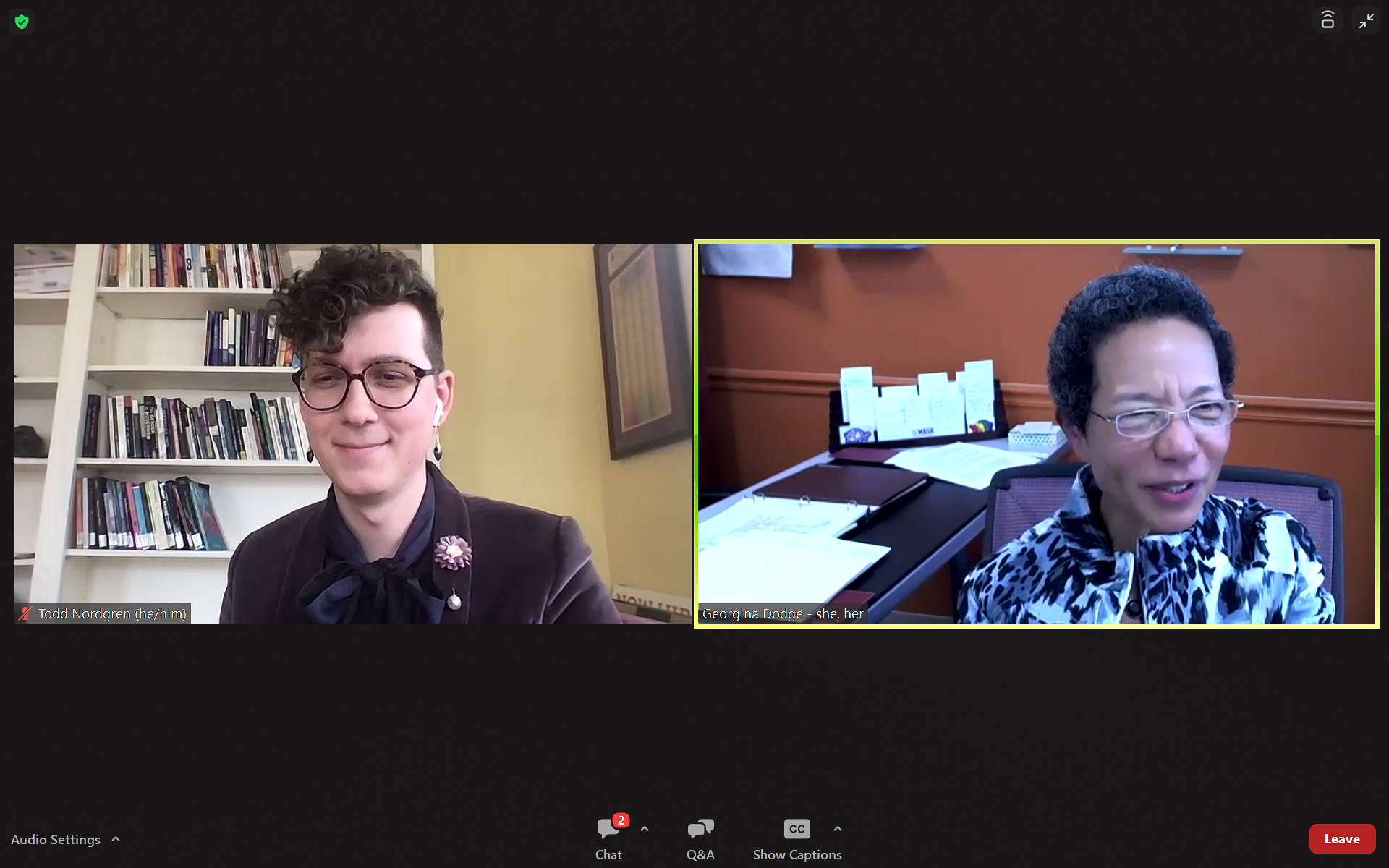By Ilana Williams, Nick Elliott and Shifra Dayak
Four finalists for the director position at the University of Maryland’s LGBTQ+ Equity Center shared their visions in a series of webinars in February, including priorities such as focusing on intersectionality and educating the campus community.
The webinars came as part of this university’s diversity, equity and inclusion office’s second round of searches for a new equity center director. The office searched for a director last spring after former acting director Shige Sakurai departed in February 2022, but did not hire anyone, diversity and inclusion Vice President Georgina Dodge wrote in an email to the university on Feb. 8.
Here’s an introduction to each of the four finalists.
Rachel Garcia
Rachel Garcia serves as the University of Delaware’s student diversity and inclusion interim director.
There, Garcia — who herself is a first-generation graduate of the University of Delaware — advised a student organization that aims to provide support for first-generation students on campus.
Previously, Garcia worked at the University of South Florida’s multicultural affairs office, where she served as assistant director of diversity training. In this position, she handled requests for diversity trainings on the university’s campus and managed a program that connected international students with non-international students.
Erica Friedman
Erica Friedman spoke about how the LGBTQ+ Equity Center can apply intersectionality by expanding this university’s TerrapinSTRONG goals and asking how this university can be more inclusive.
“Partnerships are fundamentally and instrumentally key to being truly intersectional and inclusive,” Friedman said. “There is no one director, one hire, one set of staff who are going to know all of the knowledge and represent all of the identities and experiences in our vastly diverse LGBTQ+ communities.”
One of Friedman’s goals if selected as director is identifying and partnering with queer subcultures in the university community. In Florida, Friedman worked in the ballroom scene in Miami, a queer subculture introduced in New York. Friedman used this partnership to connect Black LGBTQ students with this part of their history and culture.
Friedman also suggested working with local members of the Piscataway tribe — whose land this university lies on — to create pathways for houseless, queer, Black or Indigenous students to attend this university.
[‘They deserve not to be forgotten’: UMD community honors MSU shooting victims]
Friedman would also work to create a scholars program specifically for the LGBTQ+ community, they said.
This program would include a scholarship as part of the scholars program, which they said would be funded by a large donor endowment or a grant.
“I know it seems really ambitious, but that’s who I am,” Friedman said.

Todd Nordgren
Todd Nordgren also focused on intersectionality in discussing his plans if selected as director.
Although anti-LGBTQ laws come from a small portion of the population, these bills often harm LGBTQ+ youth even if they don’t pass because of the violent rhetoric and attacks legislation could incite, Nordgren said, adding that a focus on intersectionality can help students who face this type of discrimination.
If he becomes director of the equity center, Nordgren said he wants to implement educational co-curricular programs focused on lived experience and LGBTQ history, as well as community-building and mentorship programs.
“[Education] is at the center of giving our policies teeth and improving the campus climate,” Nordgren said. “We can’t simply plan for change. We have to help people understand why change matters and how it can happen.”
This might include adding a speaker’s bureau that highlights marginalized voices, offering advanced topic training for faculty, staff and students and bringing experts to the campus who focus on connecting the past and the present, Nordgren said.
Nordgren also wants to grow an LGBTQ+ alumni association across the campus.
“Whether it’s about building a better future after graduating or finding people outside your place of work, the outcomes lead to a more thriving sense of joy and connections to local activism,” Nordgren said.
The LGBTQ+ Equity Center should also assess campus work to know what should be done and to celebrate what the campus is already doing, Nordgren said. He said research that provides this type of outlook can come from people who work in this university’s labs and anyone interested in working with the queer and transgender community.
[Students, local businesses rally to aid earthquake victims in Turkey and Syria]
“The LGBTQ population that’s already here needs a place to exist and thrive,” Nordgren said. “We’re committed to the demographics that exist now.”
Kristopher Oliveira
Kristopher Oliveira said as a potential director, he wants to center the mission, vision and outcomes of the LGBTQ+ Equity Center around the most marginalized students to address the root causes of problems rather than the outcomes.
A multifaceted approach is necessary to solve systemic forms of oppression on the campus, Oliveira said. He’d focus on advocacy based on systems and responsive to individual moments, he said.
“[You need] the background research to make sense of the system that you’ve got in place, then deciding how you’re going to institute this process and what’s actually possible,” Oliveira said.
His mission is to help community members understand the joint impacts of sexism, homophobia and transphobia.
Since 2012, Oliveira has been working and studying in LGBTQ+ resource centers including those at St. Cloud State University, the University of Kansas and Princeton University. He’s a sociologist and has focused on higher education and activism.
Oliveira said he’s interested in how modern developments have affected LGBTQ+ equity centers and how he can be more aggressive in moving them in the next generation.
It’s important to be “human-centered” in equity work, Oliveira said.
“The hardest thing I’ve ever had to do is pay for a student’s funeral,” he said. “People can learn that everybody’s not always ok.”



